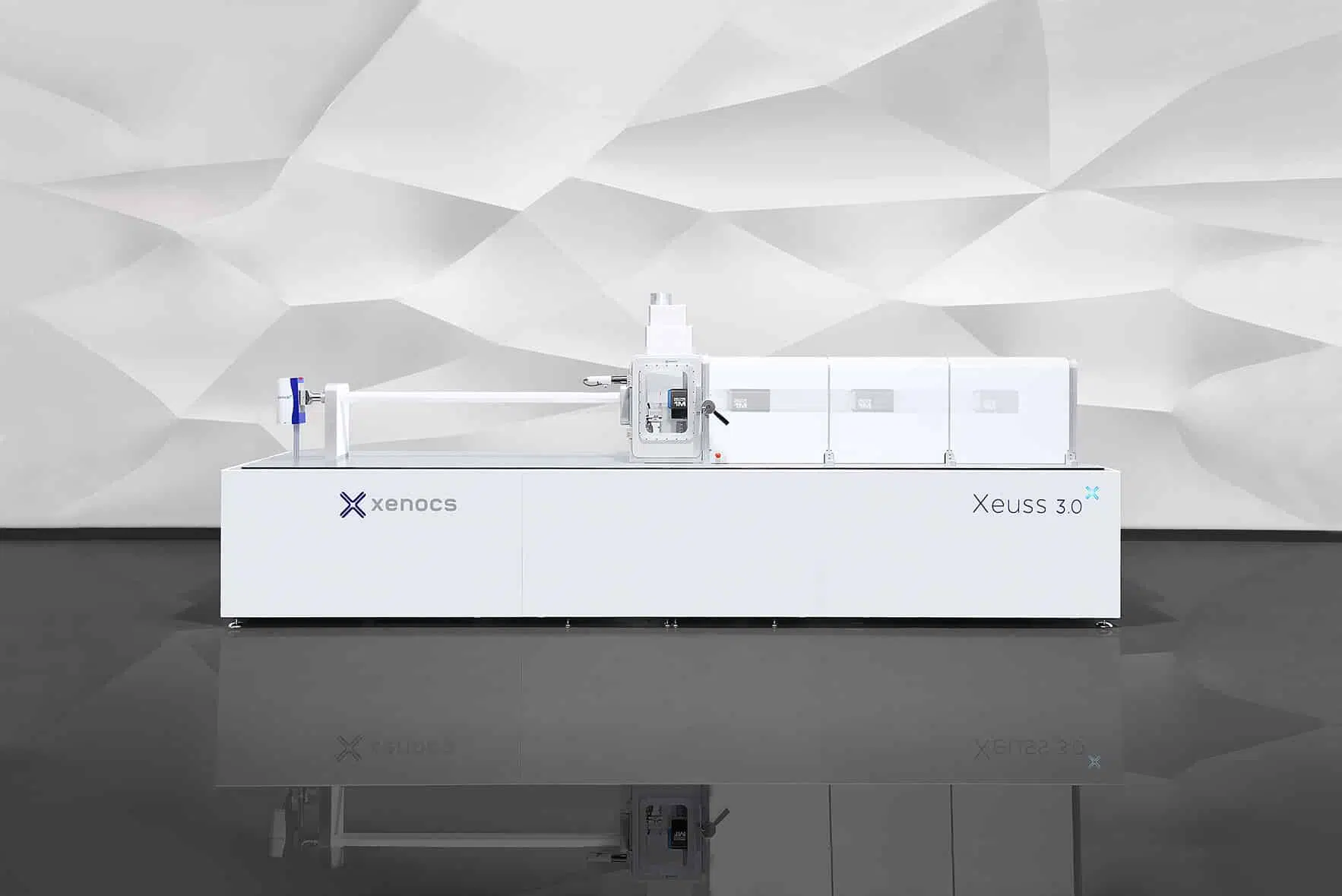Hu, Linlin; Qu, Fang; Wang, Yongyue; Shen, Junfang; He, Qun; Zhang, Bin; Bu, Weifeng
Phosphorescent and semiconductive fiber-like micelles formed by platinum(II) complexes and block copolymers
The electrostatic self-assembly of cationic platinum(II) complexes with negatively charged block copolymers in water leads to the formation of fiber-like micelles with a platinum(II)-based ionic core surrounded by a poly(ethylene oxide) corona. The structural details are well documented by various microscopic observations, small-angle X-ray scattering, and wide-angle X-ray scattering. In…
pH-driven preparation of small, non-aggregated micelles for ultra-stretchable and tough hydrogels
Yu, Xiaofeng; Qin, Zezhao; Wu, Haiyang; Lv, Hongying; Yang, Xiaoniu
Hydrogels based on deformable micelle crosslinkings can form self-adjustable homogeneous network, which is the critical factor in improving mechanical properties. However, it is a great challenge to prepare these micelle cross-linkings simultaneously with small size and uniform distribution. In this work, the uniform micelle cross-linkings with diameters
ORMOSIL–ZrO2 hybrid nanocomposites and coatings on aluminium alloys for corrosion resistance; a sol–gel approach
Smitha, V. S.; Syamili, S. S.; Mohamed, A. Peer; Nair, Balagopal N.; Hareesh, U. S.
Corrosion resistant coatings are prepared from a hybrid nanocomposite aerogel derived from tri-functional silanes, methyltrimethoxysilane (MTMS) and glycidyloxypropyl trimethoxysilane (GPTMS) and from a zirconium isopropoxide (ZIP) precursor which acts as an inorganic nano-dispersion in an organically modified silane (ORMOSIL) matrix. A series of hybrid compositions of MTMS and GPTMS are…
Scalable, anisotropic transparent paper directly from wood for light management in solar cells
Jia, Chao; Li, Tian; Chen, Chaoji; Dai, Jiaqi; Kierzewski, Iain Michael; Song, Jianwei; Li, Yiju; Yang, Chunpeng; Wang, Chengwei; Hu, Liangbing
The growing demand for flexible electronics and solar energy conversion devices has fueled a search for high-quality paper-based materials with excellent mechanical flexibility and optical properties such as high transparency and haze. Despite the tremendous efforts have been dedicated to developing paper-based materials with high transparency or high haze, challenges…
One-dimensional oriented microcapacitors in ternary polymer nanocomposites: Toward high breakdown strength and suppressed loss
Song, Silong; Wang, Yao; Luo, Yu; He, Dalong; Abella, Ana; Deng, Yuan
Poly(vinylidene fluoride) (PVDF) based composites incorporating conductive fillers enable quick achievement of ultrahigh dielectric constant based on percolation theory; however, the accompanying drawbacks high dielectric loss and poor insulation have impeded their practical applications. A novel ternary Bi2S3-BaTiO3/PVDF nanocomposite architecture has been constructed via hot stretching process,…
Orientation direction dependency of cavitation in pre-oriented isotactic polypropylene at large strains
Lu, Ying; Thompson, Glen; Lyu, Dong; Caton-Rose, Philip; Coates, Phil; Men, Yongfeng
Orientation direction dependency of whitening activated at large strains was studied using four pre-oriented isotactic polypropylene (iPP) samples with different molecular weights stretched along different directions with respect to the pre-orientation (0°, 45°, and 90°) by means of in situ wide-, small-, and ultra-small-angle X-ray scattering techniques. A macroscopic fracture…
Nanostructured Branched-Chain Carboxylate Ionic Liquids: Synthesis, Characterization, and Extraordinary Solubility for Bioactive Molecules
Ke, Yuqi; Jin, Wenbin; Yang, Qiwei; Suo, Xian; Yang, Yiwen; Ren, Qilong; Xing, Huabin
The design of multifunctional ionic liquids (ILs) that integrate different attractive characteristics, such as strong hydrogen-bonding interactions, good lipophilicity, significant nanoscale organization, and low viscosity, in a molecular structure is of great importance for the application of ILs in extraction, biomass conversion, and catalysis but remains challenging. Here, we synthesized…
Nonsolvent-induced morphological changes and nanoporosity in poly(L-lactide) films
Shaiju, P.; Murthy, N. Sanjeeva; Gowd, E. Bhoje
The role of a nonsolvent in controlling the crystallization and morphology of solvent-crystallized poly(L-lactide) (PLLA) films was investigated using various microscopy techniques and small- and wide-angle X-ray scattering (SAXS/WAXS). PLLA films crystallized in THF and acetone had 40–80 μm spherulites. When water was present in the solvent, a completely different…
Nano-porous structures via self-assembly of amphiphilic triblock copolymers: influence of solvent and molecular weight
Nehache, S.; Semsarilar, M.; Deratani, A.; In, M.; Dieudonné-George, P.; Him, J. Lai Kee; Bron, P.; Quémener, D.
Control of film structures made from a polystyrene-polystyrene sodium sulfonate-polystyrene (PS-PNaSS-PS) copolymer micellar solution is investigated in a THF/water mixture. Four different copolymers (varying molecular weights) are synthesised via RAFT (Reversible Addition Fragmentation chain Transfer) polymerisation. Depending on parameters such as copolymer molecular weight, solvent composition…
Nanostructuration effect on the mechanical properties of PMMA toughened by a triblock acrylate copolymer using multilayer coextrusion
Montana, Juan-Sebastián; Roland, Sébastien; Richaud, Emmanuel; Miquelard-Garnier, Guillaume
Multilayer coextrusion was used to obtain nanolayered films of self-assembled commercial triblock copolymer poly(methyl methacrylate-b-butyl acrylate-b-methyl methacrylate) (MAM) confined by poly (methyl methacrylate) (PMMA). A double level of organization is achieved: the obtained films are made of thousands of alternating continuous nanolayers of each component, while within the nanolayers, MAM…


































